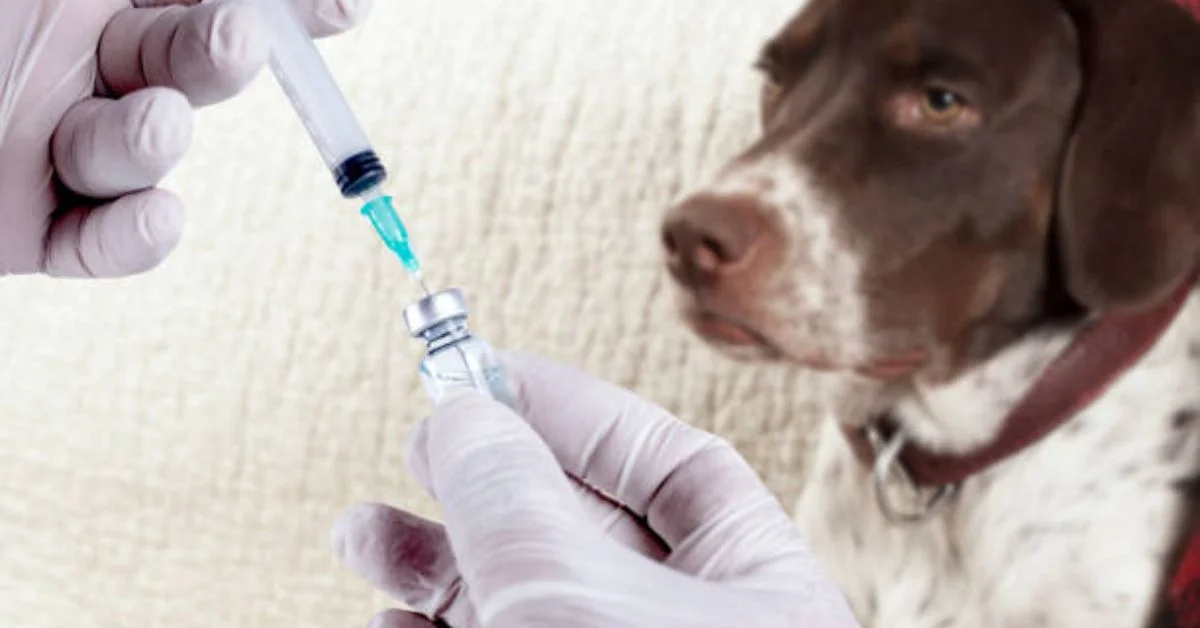
When it comes to protecting your dog’s health, vaccinations play an essential role in preventing diseases that could otherwise cause significant discomfort, long-term complications, or even be life-threatening. Among the core and non-core vaccines that veterinarians may recommend, the Bordetella vaccine is one that pet owners often hear about, especially if their dog spends time around other dogs in kennels, grooming salons, dog parks, or training facilities. The Bordetella vaccine is primarily designed to protect against Bordetella bronchiseptica, a bacterium that is a leading cause of kennel cough in dogs.
This vaccine is not only recommended for high-risk dogs but is often required by boarding kennels and daycare facilities as part of their intake policy. To understand why this is the case, it is important to explore what Bordetella is, how it affects dogs, the available vaccines, how they work, and what every responsible pet owner should know before scheduling the vaccination.
Understanding Bordetella Bronchiseptica
Bordetella bronchiseptica is a bacterium that infects the respiratory tract of dogs, leading to inflammation of the trachea and bronchi. It is one of the primary agents involved in canine infectious respiratory disease complex (CIRDC), commonly referred to as kennel cough. Kennel cough is a highly contagious illness that spreads rapidly in environments where dogs are housed close together, such as animal shelters, grooming facilities, or boarding kennels.
While kennel cough is often mild, characterized by a dry, hacking cough, it can cause more severe illness in puppies, senior dogs, or those with compromised immune systems. In some cases, untreated or severe Bordetella infections can progress to pneumonia, which is far more dangerous and requires intensive treatment. This is why prevention is a key strategy in canine healthcare.
How Bordetella Spreads
The bacterium spreads through airborne droplets, direct contact, or contaminated surfaces. For example, if an infected dog sneezes or coughs, tiny respiratory droplets containing the bacteria can be inhaled by nearby dogs. Shared water bowls, toys, and bedding can also serve as a source of infection.
The incubation period for Bordetella is generally two to fourteen days, meaning a dog can appear healthy but still be contagious. This silent transmission risk makes it very difficult to control outbreaks without preventive measures such as vaccination and proper hygiene practices in group dog settings.
Why the Bordetella Vaccine is Important
The main goal of the Bordetella vaccine is not to provide absolute immunity but to significantly reduce the severity and duration of symptoms if a dog is exposed. In many cases, vaccinated dogs that still contract kennel cough experience much milder symptoms compared to unvaccinated dogs.
By vaccinating your dog, you are also contributing to herd immunity in high-contact environments, which helps reduce the overall spread of the disease. For facilities that care for many dogs at once, mandatory Bordetella vaccination policies help protect not only individual dogs but the canine community as a whole.
Types of Bordetella Vaccines
There are three main delivery methods for the Bordetella vaccine, each with its own benefits and considerations:
1. Intranasal Vaccine
The intranasal version is given as drops directly into the dog’s nostrils. This route stimulates local immunity in the nasal passages and upper respiratory tract — the exact entry point for the bacteria. Protection often develops faster with the intranasal vaccine, making it a good option for dogs who need quick immunity before boarding or group exposure.
2. Oral Vaccine
Similar to the intranasal type, the oral Bordetella vaccine is squirted into the dog’s mouth, usually between the cheek and gum. Many owners find it easier to administer than the nasal spray, and it also stimulates mucosal immunity.
3. Injectable Vaccine
The injectable form is given under the skin and primarily stimulates systemic immunity. While it may take a bit longer for protection to develop, some veterinarians recommend it for dogs who cannot tolerate the intranasal or oral forms due to nasal or oral sensitivities.
Vaccination Schedule and Frequency
For most dogs, the first Bordetella vaccination can be given as early as 6 to 8 weeks of age. Puppies often require a booster dose several weeks later to ensure full protection.
For adult dogs, the recommended revaccination interval is typically every 6 to 12 months, depending on the dog’s exposure risk and the type of vaccine used. High-risk dogs — those frequently in social environments — may benefit from vaccination every six months.
It is essential to follow your veterinarian’s advice, as they will tailor the schedule to your dog’s lifestyle and health status.
Efficacy and Limitations of the Vaccine
While the Bordetella vaccine is effective at reducing the likelihood and severity of infection, it is not a 100% guarantee against kennel cough. This is because kennel cough can be caused by multiple pathogens, including other bacteria and viruses such as canine parainfluenza virus and canine adenovirus.
The Bordetella vaccine targets one major cause, meaning vaccinated dogs can still contract kennel cough from other agents. However, even in these cases, symptoms are often milder and recovery is quicker, making the vaccine a valuable preventive measure.
Possible Side Effects
Most dogs tolerate the Bordetella vaccine well, but as with any medical intervention, there can be side effects. These are usually mild and short-lived, such as:
- Sneezing or nasal discharge (especially with intranasal vaccines)
- Mild cough
- Low-grade fever
- Lethargy for a day or two
- Temporary loss of appetite
Serious allergic reactions are rare but require immediate veterinary attention. Signs of a severe reaction include facial swelling, vomiting, difficulty breathing, or collapse.
Who Should Get the Bordetella Vaccine?
The Bordetella vaccine is strongly recommended for:
- Dogs who are boarded regularly or occasionally
- Dogs attending grooming salons or training classes
- Dogs participating in dog shows, competitions, or group play sessions
- Dogs frequently visiting dog parks
- Shelter and rescue dogs who are exposed to high-density populations
Even if your dog primarily stays at home, an unexpected situation — such as a sudden boarding need due to travel or emergency — can arise, making it wise to keep vaccinations current.
Special Considerations for Puppies and Senior Dogs
Puppies have developing immune systems and can be more vulnerable to respiratory infections, making timely vaccination important. Senior dogs, on the other hand, may have age-related immune decline, which can put them at higher risk for complications from Bordetella. In both cases, vaccination is often more beneficial than risky, but should always be discussed with a veterinarian, particularly if the dog has pre-existing health conditions.
Bordetella and Multi-Dog Households
In homes with multiple dogs, one infected pet can quickly spread Bordetella to others. Vaccinating all dogs in the household, especially those that interact with dogs outside the home, is an effective strategy for minimizing outbreaks. This is particularly important if one dog attends daycare or training while others stay home, as pathogens can be carried back indirectly.
Boarding and Daycare Requirements
Many kennels and daycares have strict vaccination policies, with proof of Bordetella vaccination required before entry. This is not only to protect their facility from outbreaks but also to reassure pet owners that their dogs are in a safe, healthy environment. Some facilities may even specify which type of Bordetella vaccine is acceptable and how recently it must have been given.
Bordetella in Relation to Other Vaccines
While Bordetella is considered a non-core vaccine, it is often administered alongside core vaccines like distemper, parvovirus, and rabies. Some veterinary clinics offer combination vaccines that include Bordetella with other antigens, reducing the number of separate injections a dog needs. However, the choice between combination and single vaccines depends on factors like scheduling convenience, cost, and the dog’s medical history.
Long-Term Protection and Annual Boosters
Immunity from the Bordetella vaccine typically lasts between 6 and 12 months. Dogs at lower risk may only require annual boosters, while those at high risk benefit from twice-yearly administration. Your vet will help determine the best interval to maintain adequate protection.
The Cost of Bordetella Vaccination
The cost can vary depending on the veterinary clinic, geographic location, and type of vaccine used. On average, the Bordetella vaccine costs between $20 and $50. This is a relatively small investment considering the potential expense and stress of treating a respiratory infection.
Conclusion – Prioritizing Your Dog’s Respiratory Health
The Bordetella vaccine is a simple yet powerful tool in maintaining your dog’s respiratory health, particularly if your pet interacts with other dogs regularly. While no vaccine offers absolute protection, reducing the risk of serious illness and limiting the spread of disease are compelling reasons to make Bordetella vaccination part of your dog’s preventive care routine. With guidance from your veterinarian, you can choose the right vaccine type, schedule, and frequency for your dog’s individual needs.
5 FAQs About the Bordetella Vaccine for Dogs
1. Is the Bordetella vaccine mandatory for all dogs?
No, but many kennels, daycares, and grooming salons require it to reduce the risk of kennel cough outbreaks.
2. How often should my dog receive the Bordetella vaccine?
Typically every 6–12 months, depending on exposure risk and your veterinarian’s recommendation.
3. Can my dog still get kennel cough after vaccination?
Yes, but symptoms are usually milder and recovery is faster compared to unvaccinated dogs.
4. Which is better — injectable, intranasal, or oral Bordetella vaccine?
Each has benefits; your vet will recommend based on your dog’s health, age, and tolerance.
5. Are there risks or side effects?
Side effects are usually mild, such as sneezing or lethargy, and serious reactions are rare.
For more information, click here.





